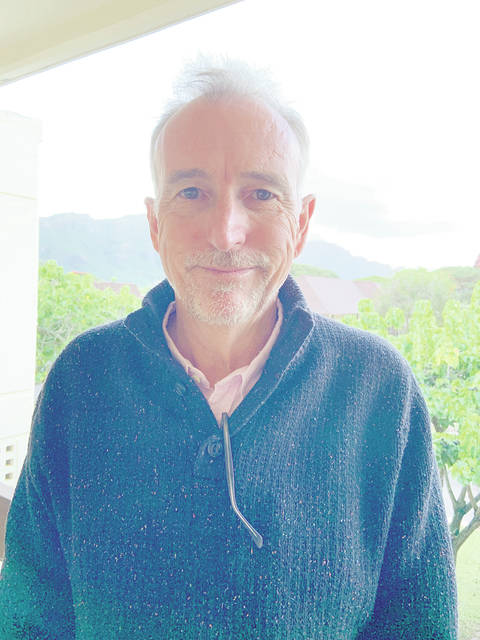Kauai High science teacher gets grant
LIHUE — Kauai High School science teacher Kevin Johnson will be getting $5,000 to buy research equipment for his classroom thanks to a grant from a nonprofit organization dedicated to promoting the understanding and appreciation of science.
The Society for Science & the Public announced Thursday it is awarding $120,000 in grants to science research teachers across the country to help them secure much-needed equipment and amenities for their classrooms.
Johnson was among the 35 grant recipients who were each awarded between $1,000 and $5,000. Johnson intends to use the money to purchase a gas chromatograph, centrifuge, and digital water-testing probes.
“With the STEM (science, technology, engineering and math) research award from the Society for Science and the Public, our students will have access to high-level research equipment that will greatly improve the quality of our projects for many years to come,” Johnson wrote in a statement.
Johnson and his colleagues have built a research program and devoted much of their typical departmental budget to research equipment for the 130 students who participate in their science fair each year, according to the society’s press release.
Kauai’s closed ecosystem contains mountains, forests, rivers, grasslands, marshes and, of course, the ocean, which makes it ideal for environmental studies involving biochemistry, cell biology and plant sciences, the news release said.
“Many teachers across the country are facing immense challenges obtaining the resources they need to purchase science equipment for their classrooms that can help engage their students and enrich their lessons,” said Maya Ajmera, the society’s president and CEO. “Through the STEM Research Grant Program, we are providing teachers with an opportunity to create meaningful STEM research experiences for their students.”
The society’s STEM Research Grant Program supports educators who are implementing fresh and innovative teaching methods to shed light on discoveries that can be made through original STEM research projects.
These one-time grants help fund equipment or other experimental materials needed to complete research projects, or travel necessary to bring students to locations where they can complete their research. Preference is given to teachers in schools that serve low-income areas or underrepresented students.
“Conducting environmental and biological research in Kauai is a natural fit for our students, but we are challenged by limited resources, both human and equipment,” Johnson said.


Wow. Science teacher. I always did like science. Even though I had a hard time learning it in high school. We were already in calculus, though I didn’t know then that calculus was an extension of algebra. Meaning they were side by side, limits. I tried in high school learning Trig and calculus in my physics class but it was harder. I still look up the topic from time to time. Like why do they use the chemical compound silicon for the transistor silicon chips and ICs? Studying this important feature only makes learning electronics even more exciting. I wonder if people will actually caught on. I’m a hobbyist too Studying the transistors and the way they act, only makes it more interesting. I think they just want the application part. Which is fine too. But learning the concepts and ideas is even better. It will last longer. Plus get the job done quicker.
For the starters, if you just want to learn a hobby, like say building cars or learning about radios, read the books on Electronics For Dummies, by Cynthia Shamish. It will give a world of information to start from. You’ll be a mechanic or electronics guy in no time. Easy. One word for the hobbyist, though, “And that controlling the flow of electric current, is the basis of Electronics.” Cynthia Shamish. One hobbyist to another.